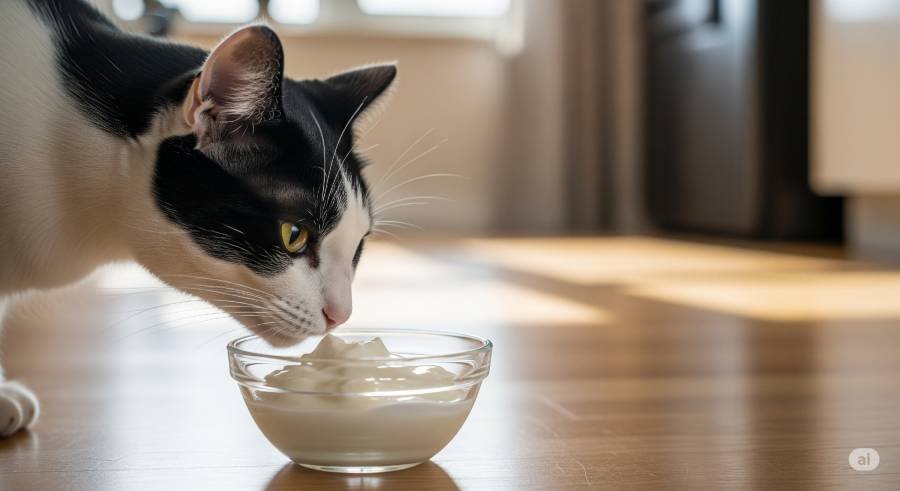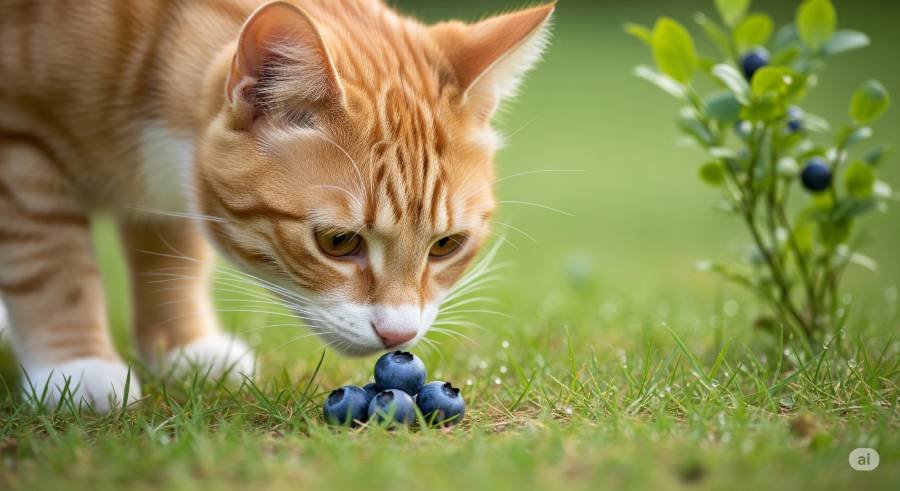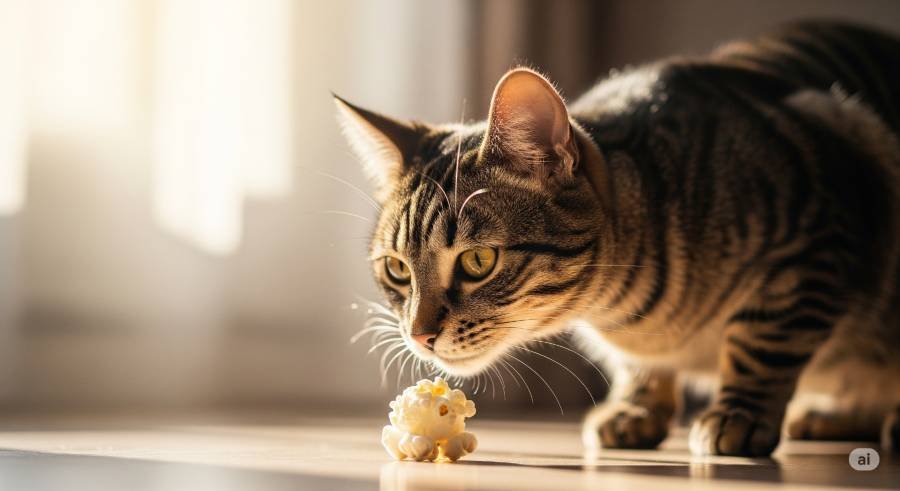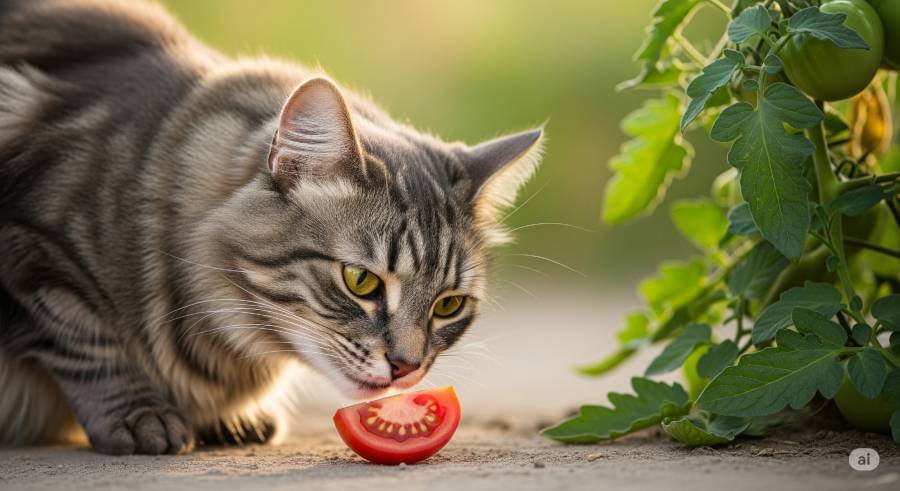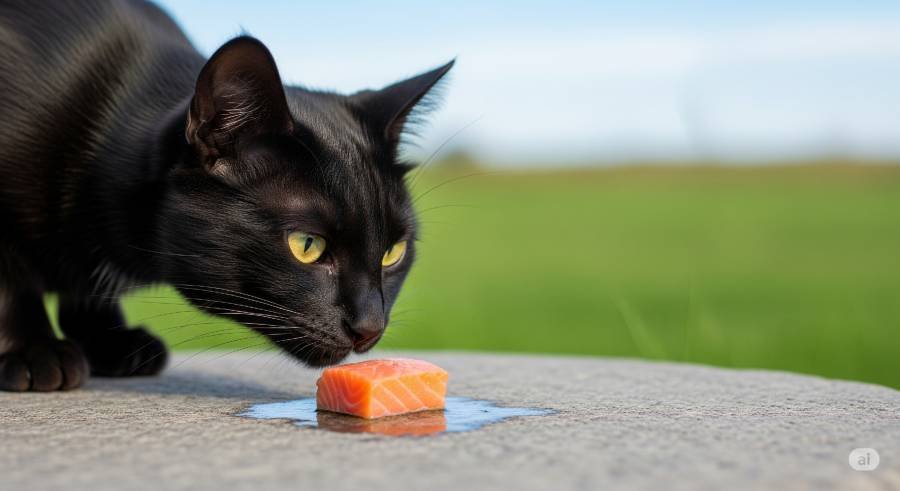Mango, a sweet and juicy tropical fruit, can be a safe occasional treat for felines when offered in small, properly prepared portions.
While the flesh of ripe mango is non-toxic, it provides minimal nutritional benefits for felines, who are obligate carnivores requiring a meat-based diet.
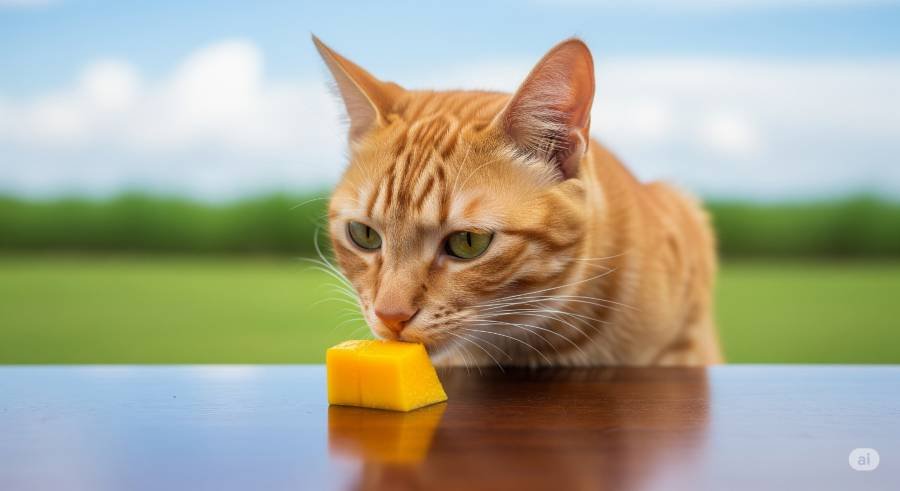
Potential Benefits of Mango for Cats
When given sparingly, mango may offer slight advantages for felines:
- Vitamins: Mango is rich in vitamins A, C, and E. Vitamin A supports vision and skin health, while vitamin C, though synthesized by felines, is not harmful in small amounts. Vitamin E provides antioxidant properties.
- Fiber: The fiber in mango can aid digestion and may help with mild constipation in felines.
- Hydration: With approximately 83% water content, mango can contribute to hydration, especially for felines that drink less water.
- Low Fat: Mango is low in fat, making it a less calorie-dense treat compared to fatty human foods.
- Appeal: The sweet taste and soft texture of ripe mango may attract some felines, providing sensory enrichment.
These benefits are minor, as felines derive most of their nutrition from meat-based sources, and mango should remain a rare treat.
Risks and Dangers of Mango for Cats
While mango flesh is safe, several risks must be considered:
- High Sugar Content: Mango is high in natural sugars, which can cause digestive upset (e.g., vomiting, diarrhea) in felines, who lack efficient carbohydrate-digesting enzymes. Excessive sugar may contribute to obesity or diabetes over time.
- Choking Hazard: Large pieces of mango or tough skin can pose a choking risk, particularly for small felines or those that don’t chew well.
- Pesticides or Contaminants: Non-organic mangoes may carry pesticide residues or bacteria. Thorough washing and peeling are essential.
- Mango Skin and Pit: The skin is tough, hard to digest, and may contain urushiol, an irritant also found in poison ivy, which could cause mild skin or digestive irritation. The pit is a choking hazard, may cause intestinal blockages, and contains small amounts of cyanide, which is toxic.
- Allergies or Sensitivities: Some felines may experience allergic reactions (e.g., itching, swelling) or gastrointestinal distress from mango.
- Unripe Mango: Unripe mangoes are harder and more acidic, potentially causing stomach upset or discomfort.
How to Safely Feed Mango to Cats
To ensure mango is safe, follow these guidelines:
- Use Ripe Mango Flesh: Offer only the soft, ripe flesh of the mango, with the skin and pit completely removed.
- Wash and Peel: Rinse the mango thoroughly to remove pesticides or bacteria, then peel the skin to avoid irritation and aid digestion.
- Cut into Small Pieces: Dice the flesh into tiny, bite-sized pieces or mash it to prevent choking and make it easier to digest.
- Feed Sparingly: A small portion (e.g., a teaspoon of mango flesh) once or twice a month is sufficient. Treats should not exceed 10% of a feline’s daily caloric intake.
- Avoid Processed Mango: Do not offer dried mango, mango juice, or mango-flavored products, which often contain added sugars, preservatives, or artificial sweeteners like xylitol, which is toxic to felines.
- Monitor for Reactions: Introduce mango gradually and observe for digestive upset (e.g., vomiting, diarrhea) or allergic reactions (e.g., itching, swelling) over 24–48 hours. Stop feeding mango and consult a veterinarian if issues arise.
- Consult a Vet: Before offering mango, especially to felines with conditions like diabetes, obesity, or digestive issues, seek veterinary advice.
Signs of Mango-Related Issues
If a feline consumes unsafe parts of a mango or has an adverse reaction, watch for:
- Vomiting or diarrhea
- Choking, gagging, or difficulty swallowing
- Lethargy or reduced appetite
- Itching, swelling, or skin changes (indicating an allergic reaction)
- Neurological symptoms (e.g., tremors, weakness) if the pit is ingested, due to cyanide
If these signs appear, discontinue mango and contact a veterinarian immediately. Choking, blockages, or toxicity require urgent care.
Expert Opinions
Veterinary sources, such as the ASPCA and PetMD, confirm that the flesh of mango is non-toxic to felines but caution against feeding the skin or pit due to potential toxicity and digestive risks. The ASPCA advises moderation and warns against processed mango products with harmful additives. Veterinarians recommend prioritizing feline-specific, meat-based treats over fruits to meet nutritional needs.
Additional Considerations
- Health Conditions: Felines with diabetes, obesity, or sensitive stomachs should avoid mango due to its sugar content. Consult a vet before introducing it.
- Kittens: Kittens have delicate digestive systems and should not be given mango, as it may cause significant digestive upset.
- Feline Preferences: Not all felines are interested in fruits. If uninterested, offer safer alternatives like freeze-dried meat treats.
- Organic vs. Non-Organic: Organic mangoes may have fewer pesticides, but all mangoes must be washed and peeled to remove contaminants.
- Dental Health: Sticky mango pieces could adhere to teeth, potentially contributing to dental issues in felines if not monitored.
Safe Treat Alternatives
Instead of mango, consider these feline-safe treats, which can be referenced for internal linking:
- Cooked Chicken or Turkey: Plain, unseasoned, cooked meat is a protein-rich, natural treat. Learn more about safe meats for felines.
- Blueberries: A few mashed blueberries offer antioxidants and are low in calories. See our guide on blueberries for felines.
- Pumpkin Puree: A teaspoon of plain, canned pumpkin (not pie filling) supports digestion. Explore pumpkin for felines.
- Watermelon: Seedless, rind-free watermelon flesh is hydrating and safe in small portions. Check our watermelon guide.
Introduce new treats slowly, monitor for reactions, and consult a vet if unsure about safety.
Felines can eat small amounts of ripe, peeled mango flesh as a rare treat, provided it’s thoroughly washed, free of skin and pit, and offered sparingly.
While mango provides minor benefits like vitamins and hydration, its high sugar content and potential risks make it unsuitable as a regular treat. Felines with health issues or kittens should avoid mango, and a meat-based diet with feline-specific treats is best for optimal health.
Always consult a veterinarian before introducing mango or other human foods to ensure safety.
For more information on feline-safe foods or nutrition, explore our guides on blueberries, pumpkin, or watermelon, or ask your questions!
